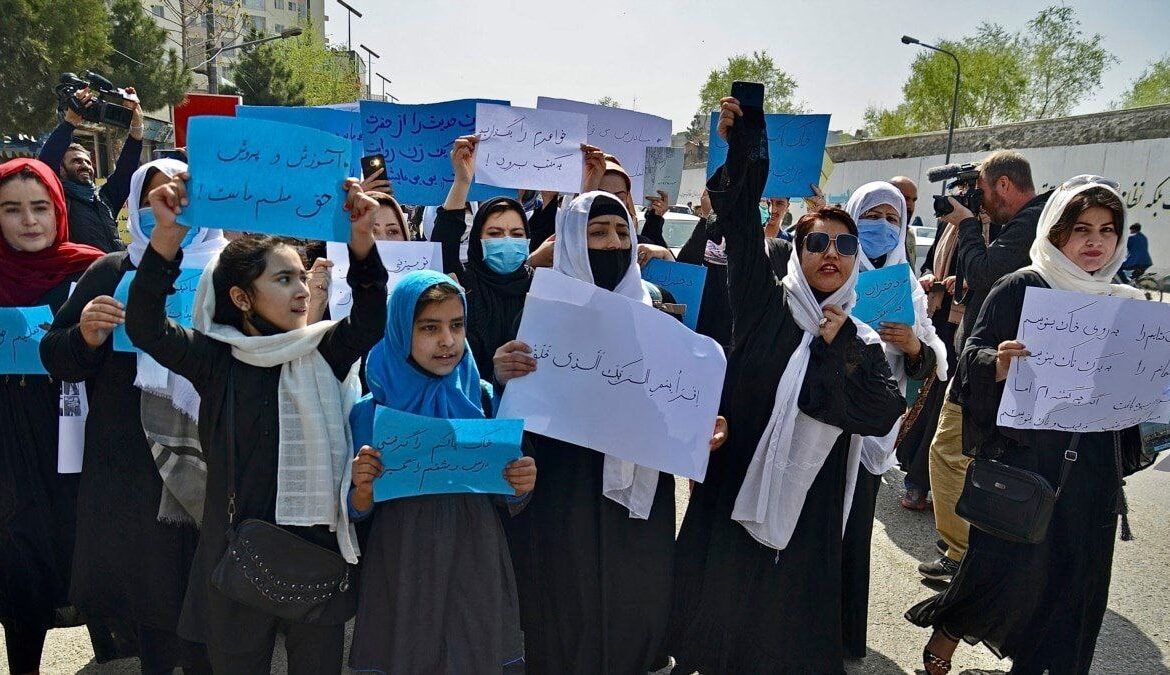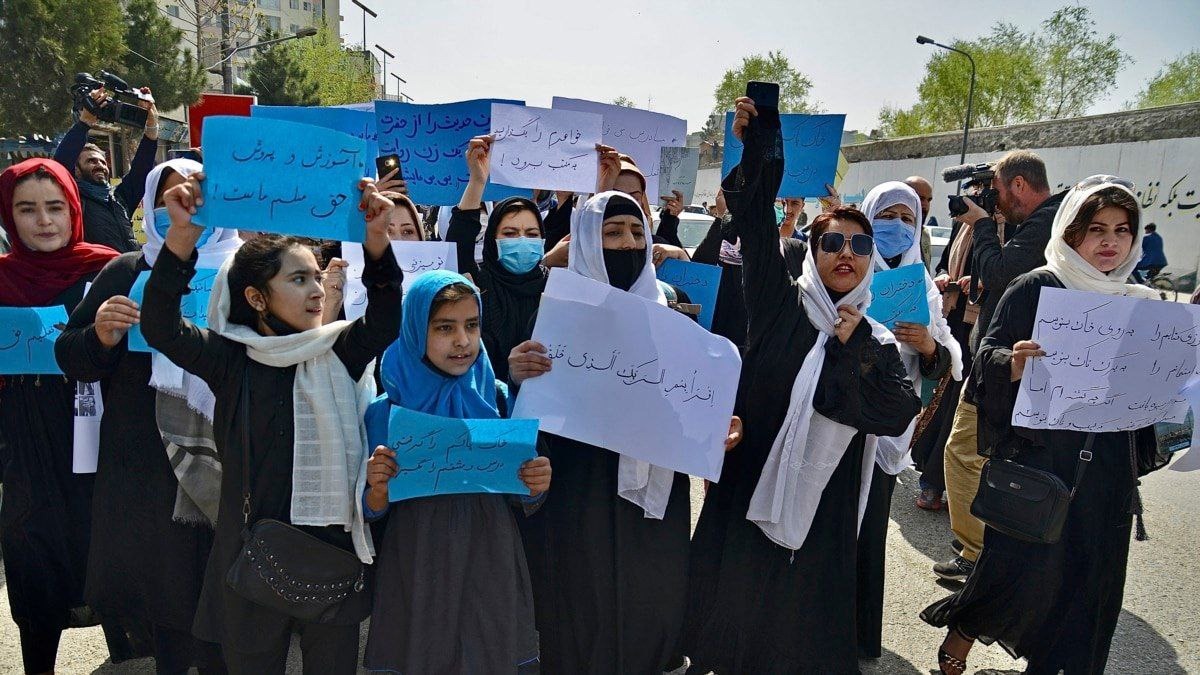
Seventeen months after imposing a ban on girls’ education beyond the sixth grade, the Taliban’s Ministry of Higher Education in Afghanistan has instituted a ban on women’s university education. The ruling, announced on December 20th, 2022, ordered universities to immediately implement the ban until further notice. Neda Mohammad Nadeem, the Taliban’s Minister of Higher Education, said that the opening of universities to women would depend on how well they are able to create conditions of education that exist “within the framework of Islamic Sharia.”
This ban was put into effect despite the fact that many female university students were admitted to university after they sat for university entrance exams held nationwide four months ago. While many high school girls had hoped that girls’ schools would finally be reopened, the decision to expel female students and ban them from entering a university education shattered all such hopes. There are now concerns that the few schools across the country that are open to girls below the sixth grade will also be closed soon.
Afghanistan is the only country in the world where women cannot exercise the right to education. Education is a basic human right that should be enjoyed by all, regardless of their ethnicity, race, class, or gender.
In the days following the announcement of the ban, female students attempted to protest this misogynistic and unjust policy by going to their universities, only to be met on their campuses by the Taliban’s armed forces. Despite the repressions that the Taliban have enforced in Afghanistan and the risks to their safety and lives, Afghan women, especially young women, continue to resist the violence of the Taliban.
A few days following this university education ban, the Taliban also banned women from working in non-governmental organizations (NGOs). Despite having made promises otherwise, this extremist group has reimposed all its draconian restrictions on women since it regained power in Afghanistan a year and half ago. In a recent report, the United Nations High Commissioner on Human Rights reported that more than half of Afghanistan’s 40 million citizens cannot access enough food, adding that restrictions on the work of Afghan women in non-governmental organizations have slowed down the aid process and will continue to have a negative impact on women and children in Afghanistan.
In recent months, the new government has also revived the implementation of laws derived from a strict and rigid interpretation of Sharia, such as floggings and public executions. In the past year and a half, the Taliban, in addition to banning girls from studying in schools and now in universities, has also banned women from working in government offices and entering parks and recreational and sports centers. Also, the restrictions and strictures regarding hijab, travel, and the social life of women have returned.
In addition to placing increased restrictions on women, the Taliban continues to confront, terrorize, and suppress Afghan civil society. A year before the Taliban came to power, a significant number of civil society activists were assassinated. Many others were threatened with assassination. On January 16, 2022, Mursal Nabizada, a former member of the Afghan parliament, was assassinated in her home in the Ahmad Shah Baba area. The Taliban has so far not taken any responsibility for the assassinations of civil activists in Afghanistan.
While expressing deep condolences over the killing of Mursal Nabizada, Femena strongly condemns the insecurity imposed by the Taliban on the Afghan people and the killings of civil society activists in Afghanistan.
Femena also considers the restrictions imposed on women in Afghanistan unacceptable. Banning women from education is an attempt to erase them from society and prevent them from making any progress or having any presence in the social sphere.
Femena calls on the international community to pressure the Taliban and condition humanitarian aid to Afghanistan on the Taliban ceasing its anti-women policies, including its ban on women’s and girls’ education. International institutions and organizations should suspend their activities in Afghanistan until women are allowed to work in those institutions and organizations.
Further, the international community should not recognize the Taliban as the legitimate and legal government in Afghanistan.
Lastly, Femena extends its solidarity to all Afghan women, who are experiencing a particularly dark and difficult reality. Afghan women need more solidarity, empathy, and attention from the international community and especially from feminists around the world. No woman anywhere in the world should be deprived of her basic human rights simply because of their gender. Femena stands with Afghan women in this struggle and strongly supports their demands for equality and human rights.


